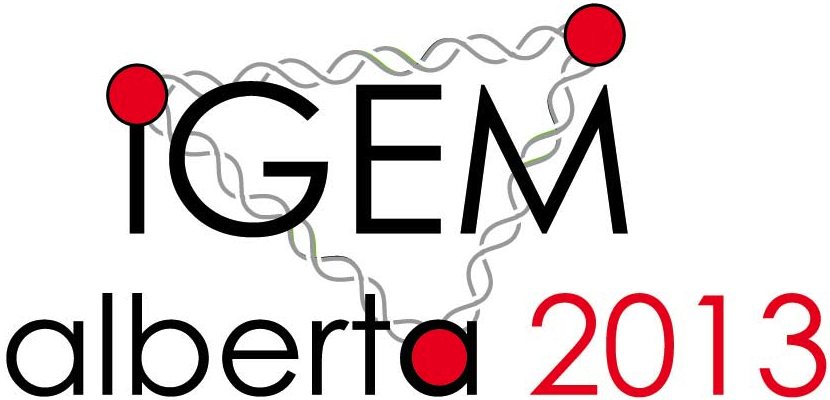Team:Alberta/FAQ
From 2013.igem.org
(Difference between revisions)
(Created page with "<html> <head> <style type="text/css"> .titlebar { height:130px; width:100%; } .bin { background:url('/wiki/images/thumb/2/26/Background.png/541p...") |
|||
| (16 intermediate revisions not shown) | |||
| Line 7: | Line 7: | ||
} | } | ||
.bin { | .bin { | ||
| - | background:url('/wiki/images/ | + | background:url('/wiki/images/e/e4/2013AlbertaBackground.png'); |
background-size:100% auto; | background-size:100% auto; | ||
padding-top:20px; | padding-top:20px; | ||
| Line 19: | Line 19: | ||
height:37px; | height:37px; | ||
margin-top:-17px; | margin-top:-17px; | ||
| - | margin-left:- | + | margin-left:-95px; |
} | } | ||
} | } | ||
| Line 49: | Line 49: | ||
.content-title { | .content-title { | ||
text-align:center; | text-align:center; | ||
| - | font-size: | + | font-size:3em; |
} | } | ||
.titlebar h3, h4 { | .titlebar h3, h4 { | ||
| Line 55: | Line 55: | ||
} | } | ||
.sidebar { | .sidebar { | ||
| - | position:fixed; | + | position: fixed; |
| - | top: | + | top: 157px; |
| - | float:left; | + | float: left; |
| - | z-index:3; | + | z-index: 3; |
| - | padding: | + | padding: 10px 10px 10px 10px; |
| + | width: 230px; | ||
| + | } | ||
| + | .sidebar_block { | ||
| + | background-color:white; | ||
| + | margin:1px; | ||
| + | border:1px grey solid; | ||
| + | padding:5px 10px 5px 10px; | ||
| + | border-radius:5px; | ||
| + | box-shadow: 0px 0px 20px #444444; | ||
} | } | ||
.main { | .main { | ||
| Line 72: | Line 81: | ||
position:fixed; | position:fixed; | ||
margin-left:70px; | margin-left:70px; | ||
| - | margin-top:- | + | margin-top:-70px; |
width:180px; | width:180px; | ||
} | } | ||
| Line 78: | Line 87: | ||
position:fixed; | position:fixed; | ||
margin-left:650px; | margin-left:650px; | ||
| - | margin-top:- | + | margin-top:-95px; |
width: 150px; | width: 150px; | ||
| + | } | ||
| + | .igem-logo img { | ||
| + | width:210px; | ||
} | } | ||
.igem-bar { | .igem-bar { | ||
| Line 371: | Line 383: | ||
box-shadow: 0px 0px 30px #000; | box-shadow: 0px 0px 30px #000; | ||
| + | } | ||
| + | a.anchor{ | ||
| + | display: block; | ||
| + | position: relative; | ||
| + | top: -180px; | ||
| + | visibility: hidden; | ||
} | } | ||
</style> | </style> | ||
| Line 376: | Line 394: | ||
<body> | <body> | ||
<div class="titlebar"> | <div class="titlebar"> | ||
| - | + | <br> | |
| - | + | <img src="/wiki/images/4/41/Ab_mapmen_title.png" width="600" height="95"></img><img src="/wiki/images/a/a5/2013-igem-logo.png" width="198" height="95"></img> | |
| - | + | ||
| - | + | ||
| - | + | ||
</div> | </div> | ||
<div class="bin"> | <div class="bin"> | ||
| Line 387: | Line 402: | ||
<li><a id="project" href="#">Project</a> | <li><a id="project" href="#">Project</a> | ||
<ul> | <ul> | ||
| - | <li><a href="/Team:Alberta/ | + | <li><a href="/Team:Alberta/Background">Background</a></li> |
| - | <li><a href="/Team:Alberta/ | + | <li><a href="/Team:Alberta/Overview">Overview</a></li> |
| - | <li><a href="/Team:Alberta/ | + | <li><a href="/Team:Alberta/Results">Results</a></li> |
| - | + | <li><a href="/Team:Alberta/Protocols">Protocols</a></li> | |
| - | + | <li><a href="/Team:Alberta/Parts">Submitted Parts</a></li> | |
| - | + | <li><a href="/Team:Alberta/Accomplishments">Accomplishments</a></li> | |
| - | + | ||
| - | <li><a href="/Team:Alberta/ | + | |
| - | <li><a href="/Team:Alberta/ | + | |
</ul> | </ul> | ||
</li> | </li> | ||
| Line 402: | Line 414: | ||
<li><a href="/Team:Alberta/Team">Roster</a></li> | <li><a href="/Team:Alberta/Team">Roster</a></li> | ||
<li><a href="https://igem.org/Team.cgi?year=2013&team_name=Alberta">Official Profile</a></li> | <li><a href="https://igem.org/Team.cgi?year=2013&team_name=Alberta">Official Profile</a></li> | ||
| - | <li><a href="/Team:Alberta/ | + | <li><a href="/Team:Alberta/Sponsors">Sponsors</a></li> |
| + | <li><a href="/Team:Alberta/Attributions">Attributions</a></li> | ||
</ul> | </ul> | ||
</li> | </li> | ||
| Line 411: | Line 424: | ||
</ul> | </ul> | ||
</li> | </li> | ||
| - | <li><i class="nav-icon"></i><a id="safety" href=" | + | <li><i class="nav-icon"></i><a id="safety" href="/Team:Alberta/MainSafety" class="active">Safety</a> |
<ul> | <ul> | ||
<li><a href="/Team:Alberta/SafetyForm">Safety Form</a></li> | <li><a href="/Team:Alberta/SafetyForm">Safety Form</a></li> | ||
| Line 421: | Line 434: | ||
</ul> | </ul> | ||
<div class="sidebar"> | <div class="sidebar"> | ||
| - | <div | + | <div class="sidebar_block"> |
| - | + | <h5>Other Sections</h5> | |
| - | < | + | <a href="/Team:Alberta/SafetyForm"><p>Safety Form</p></a> |
| - | < | + | <a href="/Team:Alberta/FAQ" class="active"><p>FAQ</p></a> |
| - | + | <a href="/Team:Alberta/Resources"><p>Resources</p></a> | |
| - | + | ||
| - | + | ||
| - | + | ||
</div> | </div> | ||
</div> | </div> | ||
<div class="main"> | <div class="main"> | ||
<div class="block"> | <div class="block"> | ||
| - | <p class="content-title"> | + | <p class="content-title"><img src="/wiki/images/thumb/b/b0/Public_members.png/463px-Public_members.png " height="120"></img> FAQ</p> |
</div> | </div> | ||
<div class="block"> | <div class="block"> | ||
| - | < | + | <h3>Doesn’t <i>E. coli</i> cause food poisoning? If <i>E. coli</i> is so dangerous, why are they being used in labs?</h3> |
| - | + | <ul> | |
| - | < | + | <li>Normal <i>E. coli</i> colonize the lower intestine of humans, while <b>producing Vitamin K</b> and |
| - | + | <b>protecting infection</b> from other harmful bacteria.</li> | |
| - | <a href="http:// | + | <li>Only some strains of <i>E. coli</i> cause food poisoning, but our group is using a <b>harmless, |
| - | + | nonpathogenic strain</b>. This train is engineered to contain mutations that would not allow the <i>E. | |
| + | coli</i> to survive outside the lab without particular nutrients.</li> | ||
| + | <li><i>E. coli</i> provides a well-studied and well-known <b>model system</b> to test and troubleshoot new | ||
| + | trials on.</li> | ||
| + | </ul> | ||
| + | <p>Reference: <a href="http://www.ncbi.nlm.nih.gov/pmc/articles/PMC1728375/"> | ||
| + | http://www.ncbi.nlm.nih.gov/pmc/articles/PMC1728375/</a></p> | ||
| + | <h3>What if plasmids containing <b>antibiotic resistance genes</b> were released into the environment despite | ||
| + | precautions?</h3> | ||
| + | <ul> | ||
| + | <li>These genes are used in synthetic biology as selection tools.</li> | ||
| + | <li>There are lower chances of gene uptake by wild bacteria compared to lab-strain bacteria which | ||
| + | have perforated membranes.</li> | ||
| + | <li>In the case that wild bacteria did uptake the antibiotic resistance gene, that gene would | ||
| + | eventually be lost in the population without exposure to the antibiotic, because it is then a | ||
| + | disadvantage for the bacteria to carry the unused plasmids. (Evidence observed in past with the | ||
| + | decline of specific antibiotic resistance after the human population limited that antibiotic).</li> | ||
| + | </ul> | ||
</div> | </div> | ||
</div> | </div> | ||
Latest revision as of 03:53, 29 October 2013
 FAQ
FAQ
Doesn’t E. coli cause food poisoning? If E. coli is so dangerous, why are they being used in labs?
- Normal E. coli colonize the lower intestine of humans, while producing Vitamin K and protecting infection from other harmful bacteria.
- Only some strains of E. coli cause food poisoning, but our group is using a harmless, nonpathogenic strain. This train is engineered to contain mutations that would not allow the E. coli to survive outside the lab without particular nutrients.
- E. coli provides a well-studied and well-known model system to test and troubleshoot new trials on.
Reference: http://www.ncbi.nlm.nih.gov/pmc/articles/PMC1728375/
What if plasmids containing antibiotic resistance genes were released into the environment despite precautions?
- These genes are used in synthetic biology as selection tools.
- There are lower chances of gene uptake by wild bacteria compared to lab-strain bacteria which have perforated membranes.
- In the case that wild bacteria did uptake the antibiotic resistance gene, that gene would eventually be lost in the population without exposure to the antibiotic, because it is then a disadvantage for the bacteria to carry the unused plasmids. (Evidence observed in past with the decline of specific antibiotic resistance after the human population limited that antibiotic).
 "
"


